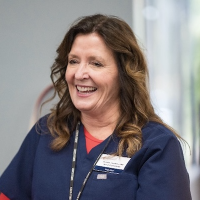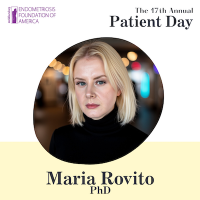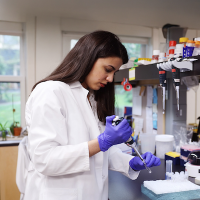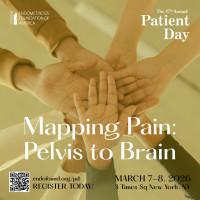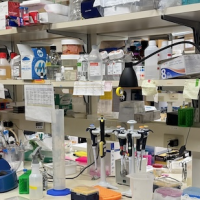
In the fall of 2022, Taylor Burchard moved from her Washington State home to Palo Alto, California, for an internship at a science research center. She loved the work, but after just three months, she reluctantly had to give it up and return home.
“Out of the blue, I couldn’t walk and got migraines, and my face was always red and swollen,” Burchard said. “I was in the ER all the time and couldn’t do my job. I didn’t know what was wrong or what to do.”
Burchard, 25, started getting pelvic and leg pain when she was in high school. It didn’t bother her too much in class, but when she ran for the cross-country team, she spent at least as much time on the sidelines as she did competing.
“My coach would say, ‘Oh, Taylor’s injured again’ or ‘She’s not feeling good again,’” Burchard recalled. “People just accepted that that’s how it was with me. It was frustrating.”
Burchard said things were “weirdly better” in college. She attended classes with little discomfort, participated in CrossFit training, and competed in triathlons, ultimately graduating in May 2022 with a degree in biology. It wasn’t until she started the internship a few months later that the symptoms consumed her life.
Burchard saw several doctors and specialists who tested her for just about everything, including lupus, multiple sclerosis, allergies, irritable bowel syndrome, and mast cell activation syndrome. Everything except endometriosis.
In February 2023, she accepted a job offer as a lab specialist and researcher in Wisconsin. She lasted just four months.
“It was really rough. I still went to the doctor a lot, almost every week, and I missed a lot of work,” Burchard said. “I returned to Washington and saw more specialists, but nobody knew what to do. I was in so much pain that I couldn’t work or sit at a desk. I was lying down all the time and had no medication to help me because no doctor could figure out what was wrong. I felt like I was stranded.”
Burchard did her own research that summer and determined she might have endometriosis. Her symptoms also matched those of a friend of hers who had the disease. Burchard went in for exploratory surgery with an OBGYN in August 2023 to find out if her self-diagnosis was correct.
“The doctor said, ‘Yep, you have it, and you’re one of the higher pain cases I’ve seen,’” Burchard said.
She had surgery with her friend’s excision surgeon four months later.
“She diagnosed it as stage II, but she also diagnosed me with adenomyosis,” Burchard said.
Burchard’s surgeon suggested she have a partial hysterectomy for the adenomyosis, a heavy weight for someone in her early 20s.
“I sat on it for over a year and grieved it in a way during that time,” Burchard said. “I figured I’d have to do it sooner or later, and I was still in a lot of pain after the surgery, so I finally decided to do it. I hadn’t had a good quality of life in three years. I was just lying around in pain all the time.”
The doctor performed the hysterectomy last month, removing Burchard’s uterus, fallopian tubes, and cervix. Her ovaries remain intact.
“I’ve been doing better,” Burchard said. “I have a lot of muscle tightness, so I’m doing a lot of pelvic floor therapy. There’s definitely an improvement, but it’s going to take some time.”
Incredibly, from the day she was diagnosed in August 2023 until her hysterectomy last month, Burchard pursued and earned her Master of Science degree in biophysics at the University of California, Riverside, more than 1,200 miles from home. She also became a College Ambassador for EndoFound.
“I felt like I was treated poorly for several years and had to go through a lot to get diagnosed. I really wanted to get involved in the foundation and teach people about endometriosis so they won’t have to go through what I went through,” Burchard said. “I didn’t have a lot of energy to do a big event, but I passed out a lot of pamphlets and have found that a lot of people I know—family and friends—have the disease. I also wanted to do this article, hoping it will help someone.”
Burchard said her primary message is for women to advocate for themselves.
“I had doctors telling me I had IBS when I knew that wasn’t it,” she said. “I had to do my own research and talk to other women in online support groups, asking them if what I was feeling was normal and what doctors were saying to them. You can’t ignore the pain—it will only get worse, and you will end up suffering in silence if you don’t advocate for yourself. And nobody deserves that.”
*Patient stories submitted to EndoFound.org are the patient's views, not necessarily those of the foundation. All testimonials are from real patients, may not reflect the typical patient’s experience, and are not intended to represent or guarantee that anyone will achieve the same or similar results.





